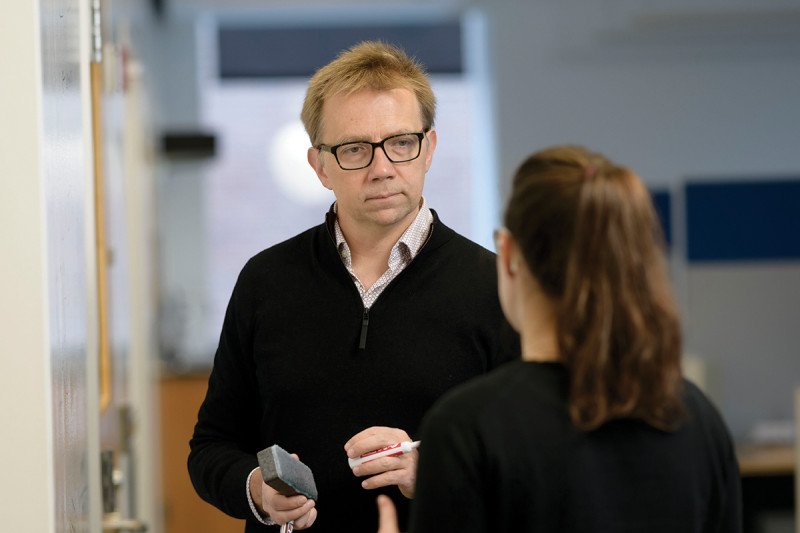
Computational biologist Quaid Morris recently joined MSK to broaden the application of machine learning. Photo: Rick DeWitt
By Julie Grisham
Cancer treatment is complex. For every type of cancer, there is a range of treatments, side effects, and outcomes — both short-term and those that arise years later. Machine learning can help make sense of these variables, according to Sloan Kettering Institute computational biologist Quaid Morris. One area that Dr. Morris is focused on is using machine learning to study cancer survivorship.
“Wouldn’t it be great if a computer could scan all of a patient’s medical records and find signs that indicate some potential risk?” he asks. “This includes making sense of handwritten and typed notes in someone’s medical record, finding patterns, and then flagging any warnings so a clinician could take a more in-depth look at them.”
This application of machine learning could lead to better tools for predicting disease recurrence as well as chronic health problems that may result from cancer or its treatment, Dr. Morris explains.
“Machine learning can be used to identify unanticipated patterns in very large databases,” he concludes. “MSK has a lot of patients, and hundreds of thousands of records have been collected for decades. This is the kind of data we need to detect complex patterns of interaction and anticipate how these connections will play out in patients in the future.”
